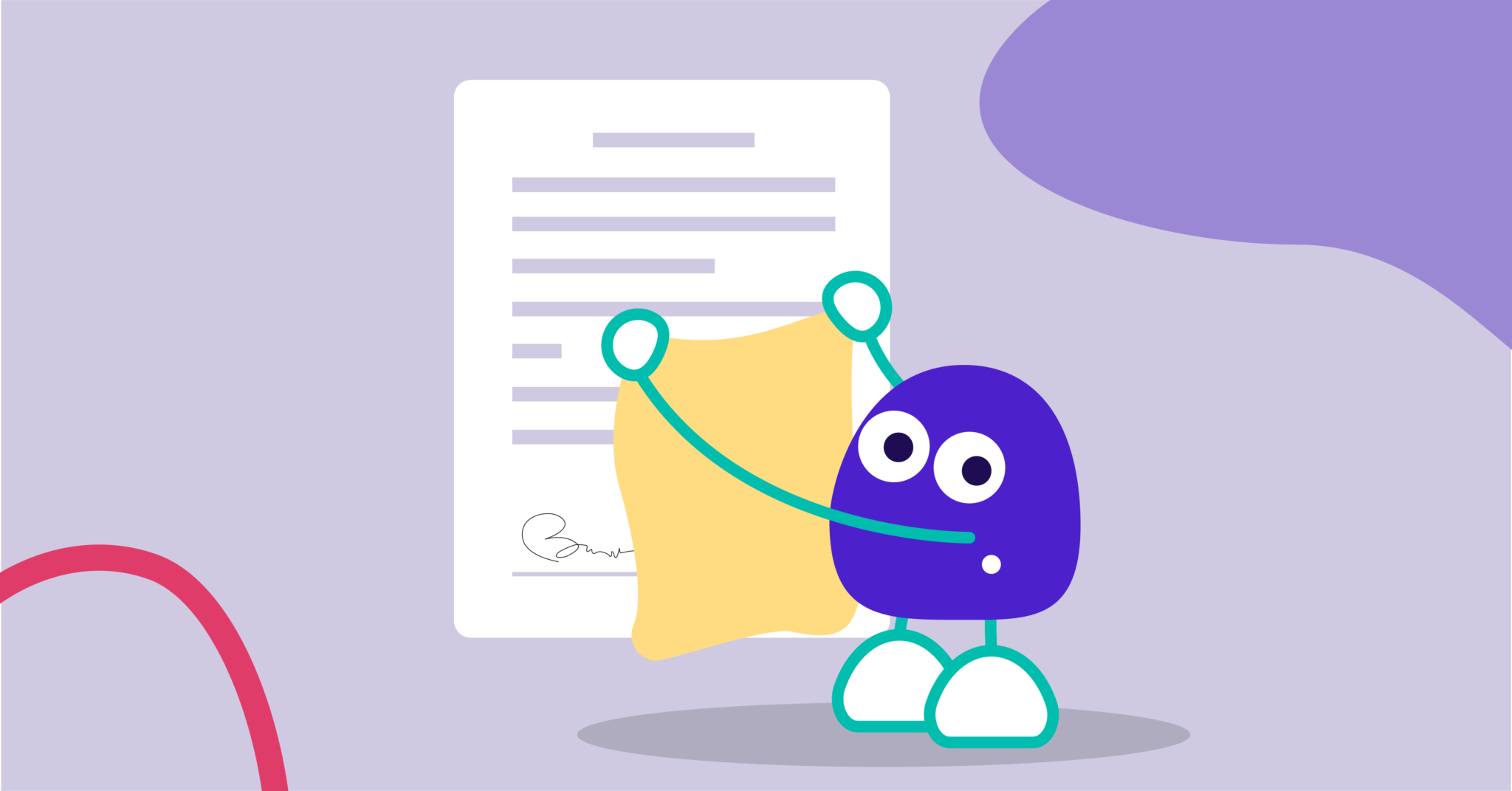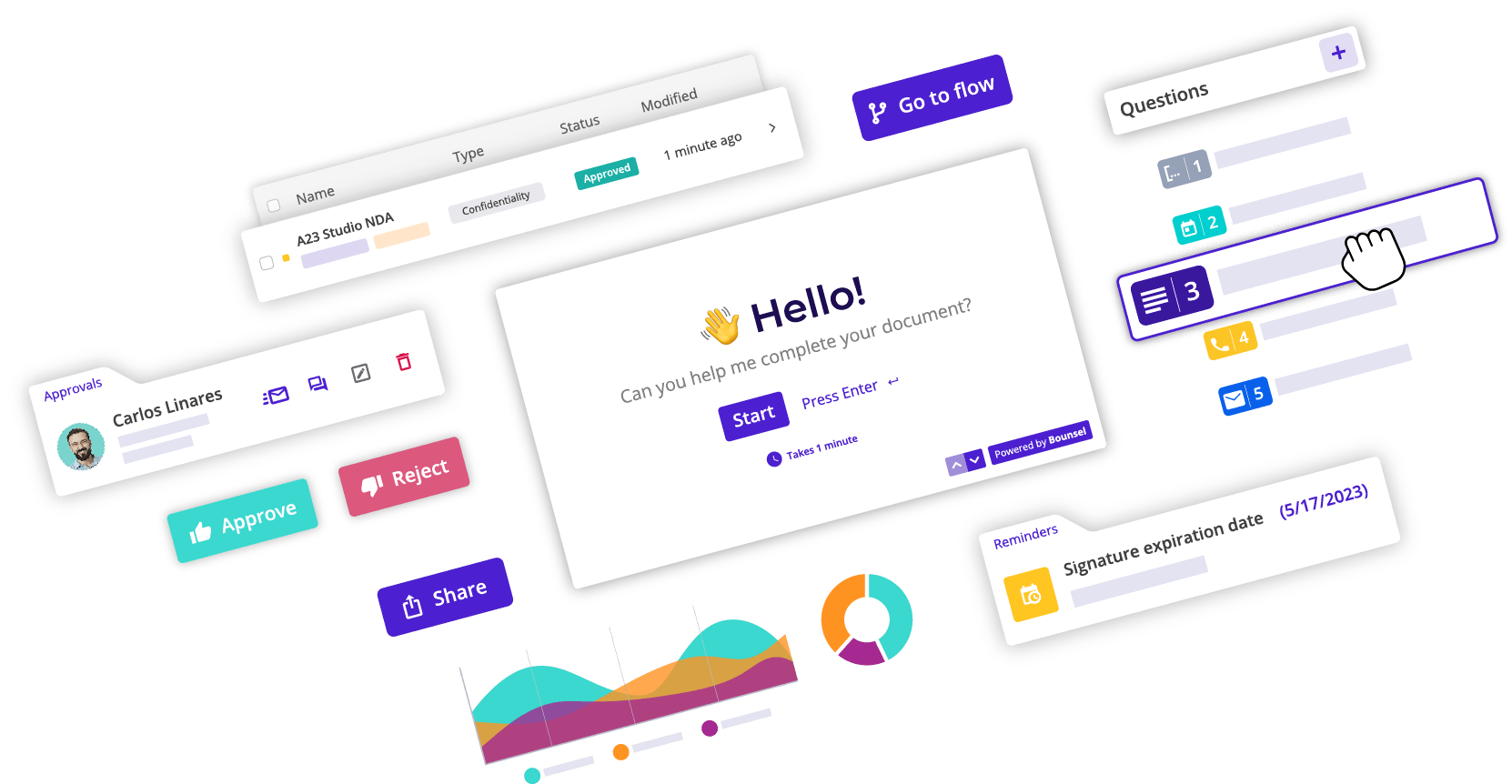A confidentiality agreement is vital for any business sector, regardless of company size or industry. There are business processes, methodologies, data and secrets that need to be protected by the organisation.
For this reason, there is a need, and sometimes an obligation, to create this type of agreement to guarantee the security of your company.
In this article we reveal step by step what elements it should contain, what happens if it is breached or how you can automate this contract.
What is a confidentiality agreement or NDA?
An NDA (non-disclosure agreement) is a confidentiality agreement. Its objective is to protect sensitive or business relevant information. It serves to store data related to products, services, companies, employees and processes. This type of agreement can be a great ally in safeguarding personal data, passwords, bank accounts, customer information and business documents in general.
An NDA should include information on the parties involved, the duration of the agreement, as well as the subject matter of the confidentiality agreement.
In Spain, according to the Organic Law 10/1995, of 23 November 1995, of the Criminal Code, Article 197 states that “A prison sentence of two to five years shall be imposed if the data or facts discovered or the images captured referred to in the previous numbers are disseminated, disclosed or transferred to third parties”.
This indicates that non-compliance with such agreements may lead to a financial penalty or criminal prosecution by the plaintiff.
What happens if a confidentiality agreement or NDA is breached?
Breach of an NDA or confidentiality agreement can lead to disciplinary dismissal of the employee if the breach occurred while there was a contractual relationship between the employee and the company.
If the employment relationship has ended and the employee discloses secrets that were stipulated in the confidentiality agreement, the company can sue. In many cases, the ex-worker may be forced to pay damages.
For this reason, in many agreements of this type, companies add a clause that disqualifies the former employee from working for competitors or companies in the same sector.
Why is a confidentiality agreement or NDA important?
A confidentiality agreement can be your best ally to avoid internal or external conflicts in the company. Some of the consequences that can occur if an NDA is breached or not properly carried out are as follows:
Suppliers and/or customers: If a change in your company’s legal status or regarding company actions is disclosed, suppliers and customers may be confused as to whether this change will affect their relationship. If the company is in the process of being bought and sold, it is essential to carry out due diligence and sign a confidentiality agreement with the investor before accessing business information.
Employees: In the event that a former employee discloses confidential information about your company, your competitors could use this information to their advantage, which in Spain is against the law. Law 3/199, of 10 January, on unfair competition. In addition, employee perception could be affected, and consequently, your employer brand.
It is vital that your organisation has legal backing to protect all the practices it has carried out over the years it has been in operation. If you have created a unique working methodology and you know that this is the secret of your business success, it could be detrimental if it falls into the wrong hands.
What types of confidentiality agreements exist?
There are different types of confidentiality agreements or NDAs, depending on the parties involved.
Human Resources
It is undisputed that in the course of their duties all employees make use of confidential information. This involves customer data, information on individual accounts, tools and internal processes.
Regardless of the employee’s seniority or position within your company, it is necessary for the employee to sign a confidentiality agreement. This creates an environment of trust and protects your company’s most sensitive information.
Investors
As mentioned above, before disclosing sensitive information or data about your company to potential investors, it is advisable to sign a confidentiality agreement or NDA. This ensures that the information you have given to the investor will not be shared with third parties.
Collaborations
When we work or collaborate with external companies, freelancers or consultancies, we ensure the security of our data and prevent its misuse by malicious persons. It is therefore also advisable to sign an NDA.
IP
When we undertake a new project, business strategies emerge that are vital for the development of the company. It is important to maintain a confidentiality agreement with employees and suppliers from the conception of the project, to avoid that these first ideas and the intellectual and industrial property of the company can be transferred to other people.
What elements should a confidentiality agreement include?
Parties
These are the parties who wish to enter into the confidentiality agreement. For example, in the case of a film that requires an NDA not to disclose plot, production or filming secrets, the stakeholders who should be in the agreement could be the director, producer and actors.
Duration
The duration of the NDA shall be set out in the confidentiality agreement. Normally, a clause in the contract provides for an extension of the agreement, which guarantees the secrecy of the information for a certain period of time. In the case of an agreement between an employee and a company, the extension makes it possible for confidentiality to be maintained for longer than the duration of the employment relationship between the two parties.
Clauses
This section should stipulate the conditions to be fulfilled by both parties. Including the non-competition clause in which the duration of the non-competition clause should be indicated.
Sanctions
A penalty clause, regulated by the Spanish Civil Code, can be established as compensation for damages. The amount fixed should be correlated to the breach of contract. In other words, the figure must be high enough to dissuade the parties from breaching the contract, but not so high as to be declared void by a judge.
Jurisdiction and applicable law
In the event of a dispute, it should be established which court is to be responsible for assessing the situation in the event of a possible infringement, as well as the laws that will govern the agreement.
Signature
For the formalisation of the agreement it is necessary for both parties to sign the agreement.
How to automate the process to generate a confidentiality agreement?
If you need a confidentiality agreement for your company and you are wondering whether it is necessary to hire a lawyer to draw it up. The answer is that in most cases it is not necessary. Thanks to legal technology you can now manage your own confidentiality agreements in minutes.
Tools such as Bounsel can help you generate an automated template that you can share with customers, suppliers, investors or employees. This way, you will save time, money and take control of your documents, centralising all the information in one place.
At Bounsel we want to help you grow your business, that’s why we provide you with a free sample confidentiality agreement in Word so that you can protect your most valuable information.
Let us know in the comments what you thought of this article. Your feedback is very important to us!












